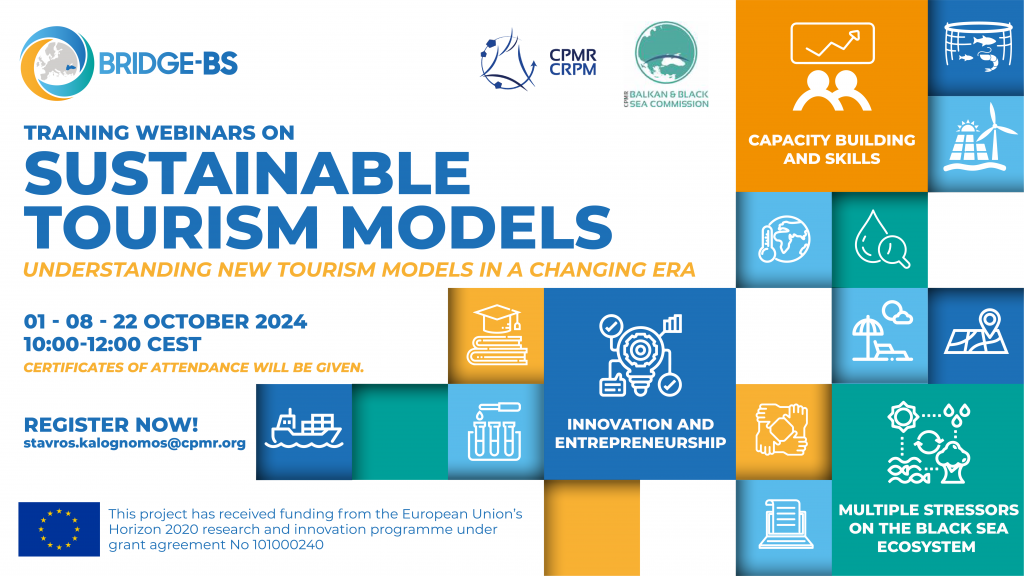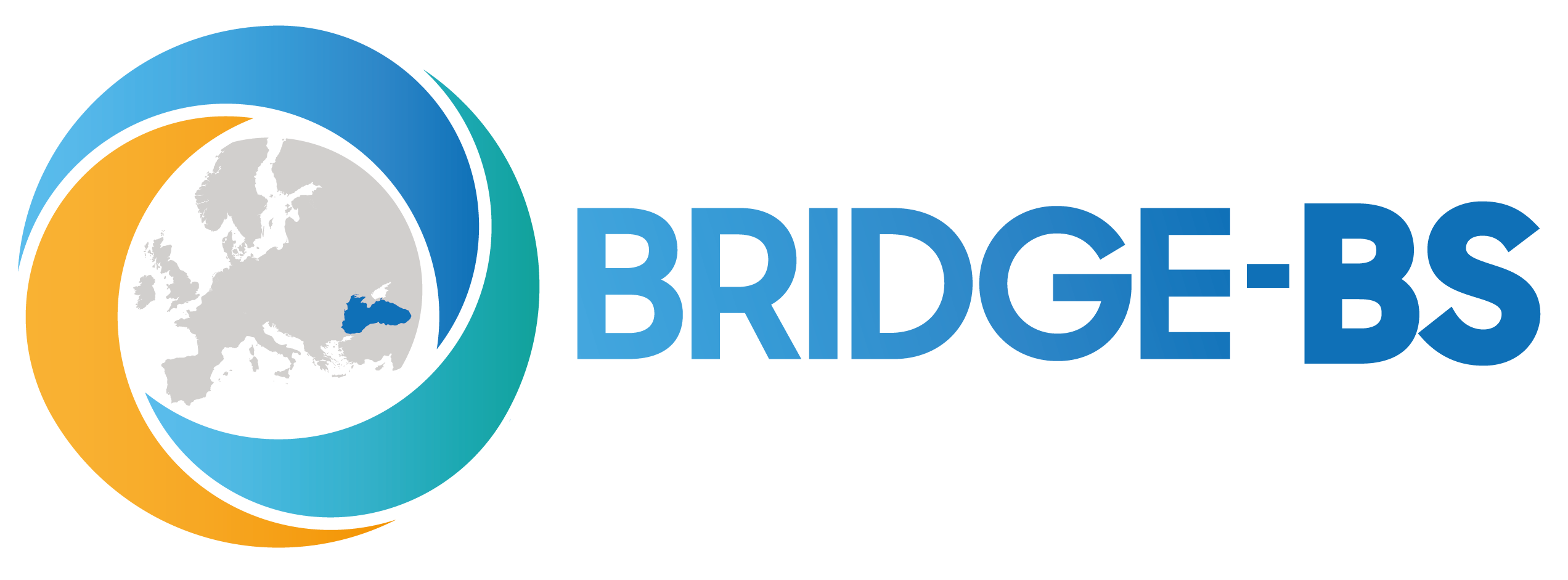
Join BRIDGE-BS Training Webinars on Sustainable Tourism Models!
Are you from Black Sea countries (Bulgaria, Türkiye, Georgia, Moldova, Ukraine, and Romania) and interested in Sustainable Tourism in the Black Sea?
Join our BRIDGE Black Sea webinars organized by the CPMR – Conference of Peripheral Maritime Regions in cooperation with ICBSS (International Centre for Black Sea Studies) and CETMAR (Centro tecnológico del Mar-Fundación Cetmar).
These three articulated webinars aim to help decision-making actors and policy stakeholders take on the new knowledge offered by the BRIDGE-BS project into their decision-making process. The webinars will accustom, in a handy way, participants to the objectives of BRIDGE-BS and the Blue Economy sectors of the Black Sea, with the tourism sector, particularly the sustainable tourism models, as the common thread.
The webinars will link with the three overarching nodes of the BRIDGE-BS i.e., multistressors, innovation and capacity building, for a holistic approach/to offer inclusive knowledge.
On completion of the three training webinars, participants will have acquired substantial knowledge of the main challenges for the Black Sea ecosystem and the contribution of sustainable tourism models to a more sustainable and resilient Black Sea, increasing economic gains for a wider range of actors and stakeholders – from local authorities and indigenous businesses to cross-border, intraregional and international cooperation – and reducing brain drain.
More precisely, participants will be able to better understand the general framework of policies and initiatives of interest to sustainable tourism and blue economy, the respective terminology and tools, and the existing and emerging trends. This will enable them to quickly and easily identify funding sources and cooperation opportunities that meet their administrations’ needs, be actively involved in consultation processes and networking fora, and, therefore, be more effective professionals and become demanded partners.
For more information and registration: [email protected]






